Baby and parent swimming lessons
Are you wondering when you can start taking your baby to swimming lessons? Our children and baby swimming lessons span from 3 months to school age. Our swim programme (called SWIMBiES) is the perfect way to help your child build confidence in the water that lasts a lifetime.
As a parent, grandparent or guardian, we encourage you to join your little one in the pool to share their first splashes. Our baby and infant swimming lessons are led by experienced and qualified swim teachers who will guide you and your little one every step of the way.
Better is the largest provider of newborn swimming lessons across the UK, so you should be able to easily find a swimming class near you. For older kids, check out the rest of our children’s swimming programmes on offer.
Find your local centre to book a lesson or course:
Benefits of parent and baby swim classes
Babies have a natural affinity with the water. This is why we have developed swimming lessons that are fun, safe and interactive and help them enjoy time in the pool.
Our swimming classes have a strong emphasis on your child’s enjoyment, aiming to help you:
- Build your child’s water confidence.
- Bond with your little one through activity.
- Develop your child’s coordination, muscle strength and motor skills.
- Understand safety procedures to ensure you and your baby are protected.
- Play games and sing songs to help your child learn.
To us, a child's emotional development is as important as their physical development in the water. This is why our programme features plenty of bonding time as well as developing eight essential Baby & Toddler swimming skills:
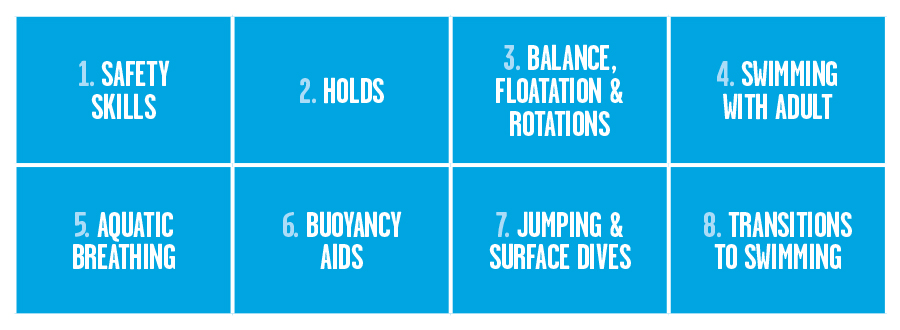
Our parent and toddler swimming programme
Thousands of pupils enjoy our swim programme each week. Have a look at our classes in more detail below:
Dippers (3 to 12 months)
Dippers are our parent and baby swimming classes that give you time to bond in the water while we teach the basics. Entry at three months to cruising (approx. 12-18 months).
Book now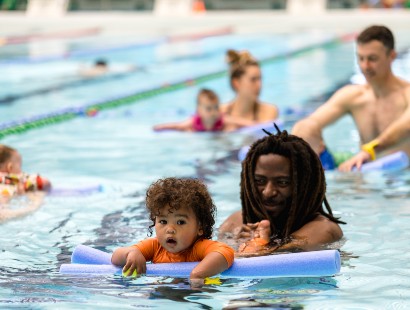
Splashers (13 months to 2 years)
Splashers infant swimming sessions are a great way to grow your child's water confidence with you right beside them. Entry after completing Dippers or children walking (approx. 12 to 18 months) to two years.
Book now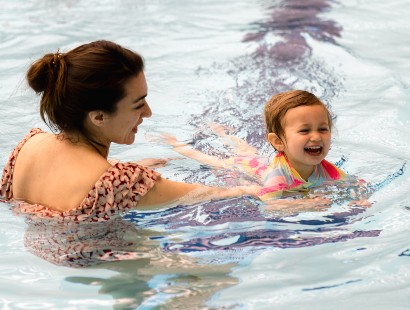
Paddlers (2 to 4 years)
Paddlers swim lessons are designed for children aged two, three and four year olds, as well as those who have completed Splashers. These classes continue building on the fundamentals and prepare them for swimming independently.
Book now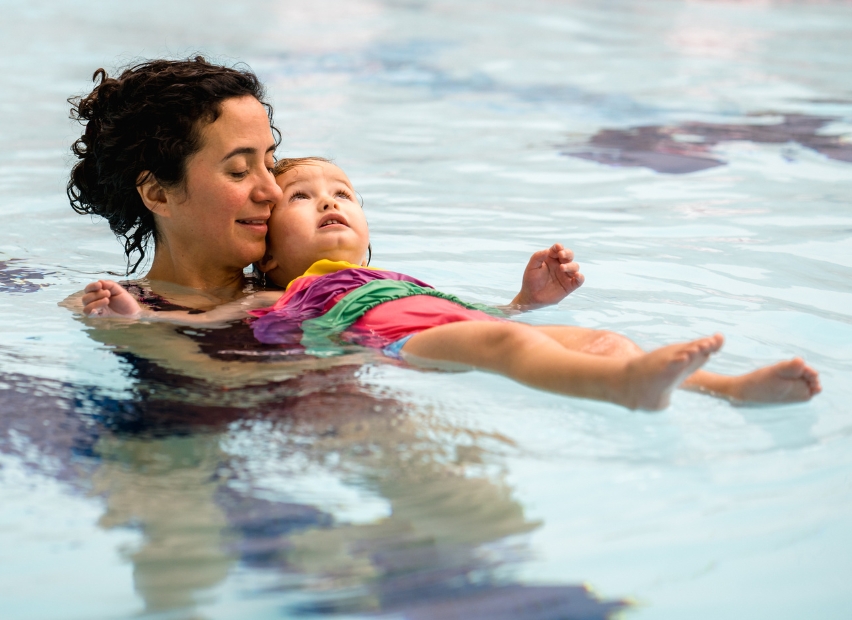
Preschool (3 to 5 years)
Our preschool swimming lessons focus on developing your child into an independent swimmer and introducing them to the key skills they’ll need to swim on their own safely. Lessons are available with and without parents in the water.
Book now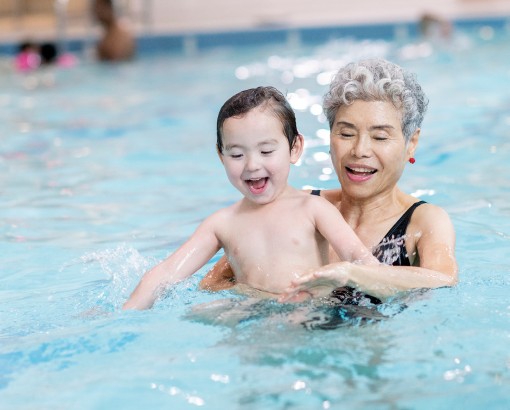
Baby and parent swimming lesson tips
How to book swim lessons
Ready to dive in?
Follow the steps below to book a lesson or course online:
- Visit our booking platform, Home Portal.
- Enter your postcode, choose swimming, and click ‘search’.
- Pick your centre and click ‘show lessons’.
- Browse lessons and choose a group/stage and lesson time that works for you.
If you’re not sure which level is right for your baby or toddler, read about our stages for more information.
And if you’ve got any questions about our lessons and courses and Home Portal, visit our Help Centre for more information.
Parent and Baby Swim Class FAQs
How should I dress/ dress my child for baby swimming lessons?
When can I take my baby swimming?
Do I need any special equipment?
Who can attend and who needs to enter the water?
Do I have to sing?
You may also like
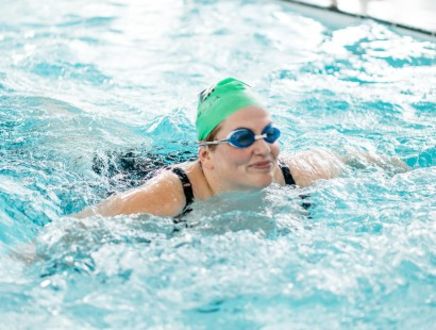
Women's Only Swim Lessons
Our sessions are led by female Swim Doctors and cater to girls and women of all abilities.
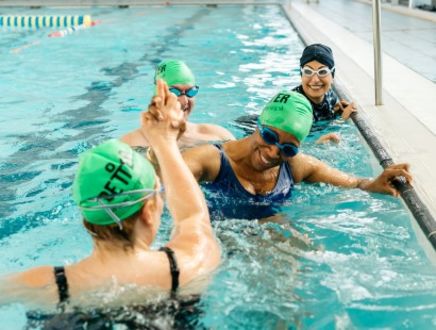
Benefits of swimming
Find out how swimming can improve you both physically and mentally.









